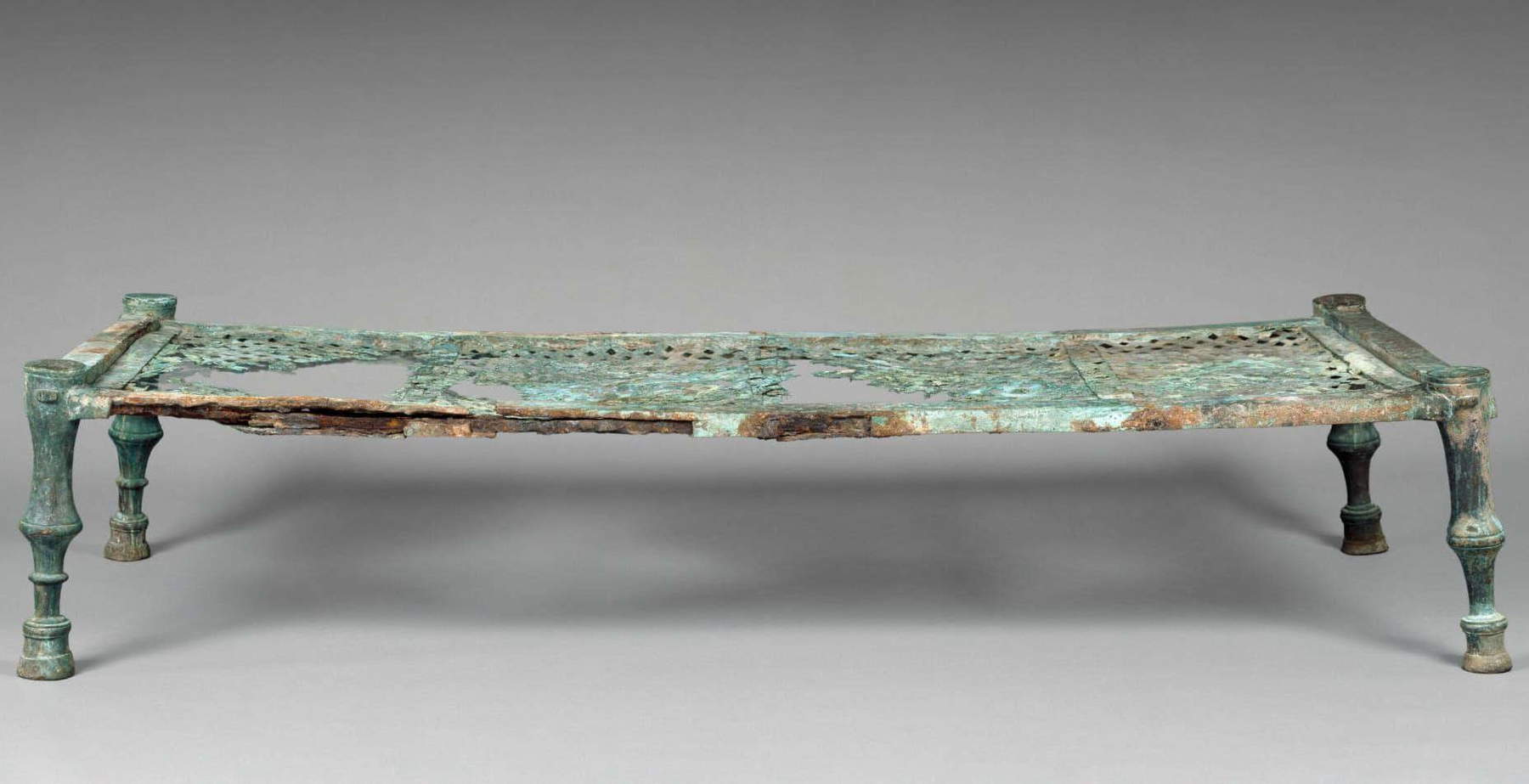The Getty Museum returns a rare bronze burial bed from 530 BC to Turkey.
The J. Paul Getty Museum in Los Angeles has returned to Turkey a valuable and rare kline, a bronze burial bed , that illegally left the country in the early 1980s. The object, datable to 530 B.C., was purchased by the Getty in 1982 from a Swiss art dealer who forged some documents to make it appear that the find was in a European collection in the 1920s. An investigation conducted by Turkey’s Ministry of Culture and Tourism and the Getty Museum revealed the falsity of this information, and that the artifact emerged through illegal excavations from a tomb located around Manisa in the early 1980s and was taken out of the country illegally.
The kline was a piece of furniture on which people could rest and eat during the day, while during funeral rituals it was used to lay the deceased. The returned work is considered a very rare surviving example of this type of furniture, which we see in depictions on other works such as archaeological wall paintings and painted ceramics. This kind of metal sofa, consisting of cast bronze legs and frame on an iron skeleton, perforated copper plates riveted together and wrapped around the frame, was modeled on the beds commonly made of wood at that time. Following scientific research, the pieces of linen attached to the kline were found to be compatible with other fragments remaining in the tomb, along with pieces of wood and bronze plates later found by Turkish archaeologists during excavations at the site, and remnants of marble and pottery vessels that helped date the tomb.
Getty Museum Director Timothy Potts, saying he was pleased to conclude the long-standing research conducted by Turkish and American academics on the cedar’s origins with this return, said the Turkish academics’ research helped reveal the find’s origin, as well as its archaeological and historical context. “We want to continue to establish a constructive relationship with the Ministry of Culture of the Republic of Turkey and our archaeologists, conservators, curators and other colleagues working in Turkey,” he said.
Deputy Minister of Culture and Tourism Gökhan Yazgı said, “I believe that the return of any cultural property illegally removed from its homeland sends a strong message to cultural property smugglers. The bronze bed is a rare archaeological artifact that was illegally removed from its home. Thanks to the renewed dialogue between Turkey and the Getty Museum, it will now be preserved in its place. Better protection of cultural heritage can only be achieved through mutual understanding and correction of past mistakes.” Turkey and the Getty Museum, he added, “may have different views on the return of cultural property. However, the declaration regarding the return of this work can be seen as a sign of closer future cooperation, with the common goal of combating cultural property smuggling. I believe both sides are now much closer to understanding each other’s views.”
 |
| The Getty Museum returns a rare bronze burial bed from 530 BC to Turkey. |
Warning: the translation into English of the original Italian article was created using automatic tools. We undertake to review all articles, but we do not guarantee the total absence of inaccuracies in the translation due to the program. You can find the original by clicking on the ITA button. If you find any mistake,please contact us.





























